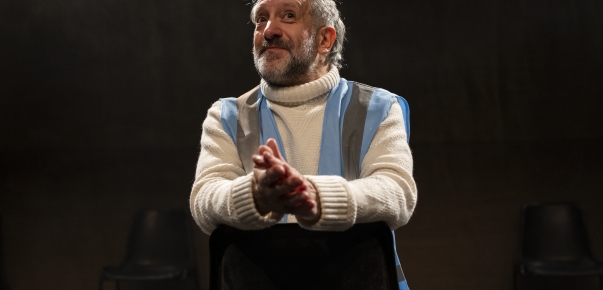Writing on Walls: Developing The Window - Silva Semerciyan
17 Oct 2014I had convinced myself that a room to write in was a luxury rather than an essential. That was because I didn’t have one. Oh yes, I’ve done time at the kitchen counter. I’ve written in bed, with my neck at an ergonomically disastrous angle and the laptop baking my legs like a couple of Christmas gammons. I’ve written on park benches with the glare of the sun making it impossible to decipher anything other than the shocking amount of dust and historic smear on the screen. I’ve leached the life out of a pot of tea at the local café, scrambling to churn out text while my daughter slept in her pram: Err, could I just have a bit more hot water on that?... But here’s what I’m finding I can do with an office: I can display four or five mind maps at a time and know they’ll still be there when I return from a break, unread and unmarked. I can move around and test dialogue aloud without causing psychological damage to anybody under the age of five. I can distance myself from the white noise of unfinished chores ‘must fold that, must send that, must unblock that’. Most importantly, I can feel like an essential member of the workforce. As a writer on attachment at the Bristol Old Vic this year, I have been administering Virginia Woolf’s prescription for better writing: ‘a room of one’s own.’ My weekly room away from home contains a large square table, six chairs, a bin, a phone that never rings, a wall-sized window, and nothing else. It’s heaven. And best of all, it’s available to me during office hours. Much as I hate to puncture the romantic image of a writer in a cold, midnight garret, producing genius in one emotionally tortured purge, I can confirm that flights of imagination are easier when you’re wide awake and not worrying about chilblains.
The Window grew out of discussions between Charlotte Melia, Lee Lyford and myself about ‘The Big Society’, that call-to-alms for the British citizen and bid for their active engagement in the community. Was it a reasonable ask? Certainly modern isolation had much to answer for: depression, anxiety, loneliness, despair. Connection to others and a sense of social responsibility seemed sorely lacking. But was it fair to set door to door altruism as a societal target? Who would be doing the majority of this do-gooding and could they really afford to? The brief, agreed between us, was to create a solo performance that wasn’t predictably unpredictable, that is, which didn’t suddenly produce any disproportionate shockers three quarters of the way through in order to raise the stakes. These were starting points, but the main impetus for writing was to tell a good story. I love unlikely friendships, and a bond between a young first time mother and the elderly man next door seemed appealingly odd.
[caption id="attachment_176471443" align="aligncenter" width="696"] Charlotte Melia in The Window[/caption]
Charlotte Melia in The Window[/caption]
The first draft was written across a week. The great thing about a play for one actor was that once I’d internalised the character’s voice, generating text was as easy as writing a diary entry. Sculpting the material into something with a narrative arc, on the other hand, took somewhat longer. It was difficult to know how much to indulge in digressions from the plot—whether these moments would entertain or frustrate. We then met to read the draft. Charlotte is an incredible sight-reader, so we all heard immediately what was ringing false. We worked through the script, interrogating each moment and every word, and finally prepared an excerpt for presentation at the January 2014 Ferment Fortnight. Ferment was brilliant. It gave us a sense of the visual possibilities and, crucially, how it was being received. With a solo performance of this kind, the audience becomes the implied conversation partner. To what extent were they mentally ‘writing’ their half of the duologue? There were some strong opinions afterwards which we took for a good sign. The most important source of feedback is always the atmosphere in the theatre, and the audience was definitely engaged and laughing. It was an encouraging springboard for the next phase.
After Ferment, we let the dust settle for a few months and then came back to it. This made it much easier to let go of favourite lines and sections that were dragging. We pushed the story further. Working with the Bristol Old Vic’s Ferment Producer Emma Bettridge, I condensed some moments, expanded others, and aimed for the elusive top note. The final play, now in Lee and Charlotte’s capable hands, is coming to life in more ways than I imagined, and that’s what I like best about collaboration: seeing things I hadn’t realised were there. It’s been a thoroughly enjoyable writing experience. No freezing in garrets required. This ‘room of one’s own’ is going to be hard to give up.
The Window
22-25 Oct
Studio
8pm
(Running time: 60mins)
£12/£8 (plus booking fee)
Ages: 12+ (swearing and sexual references)


